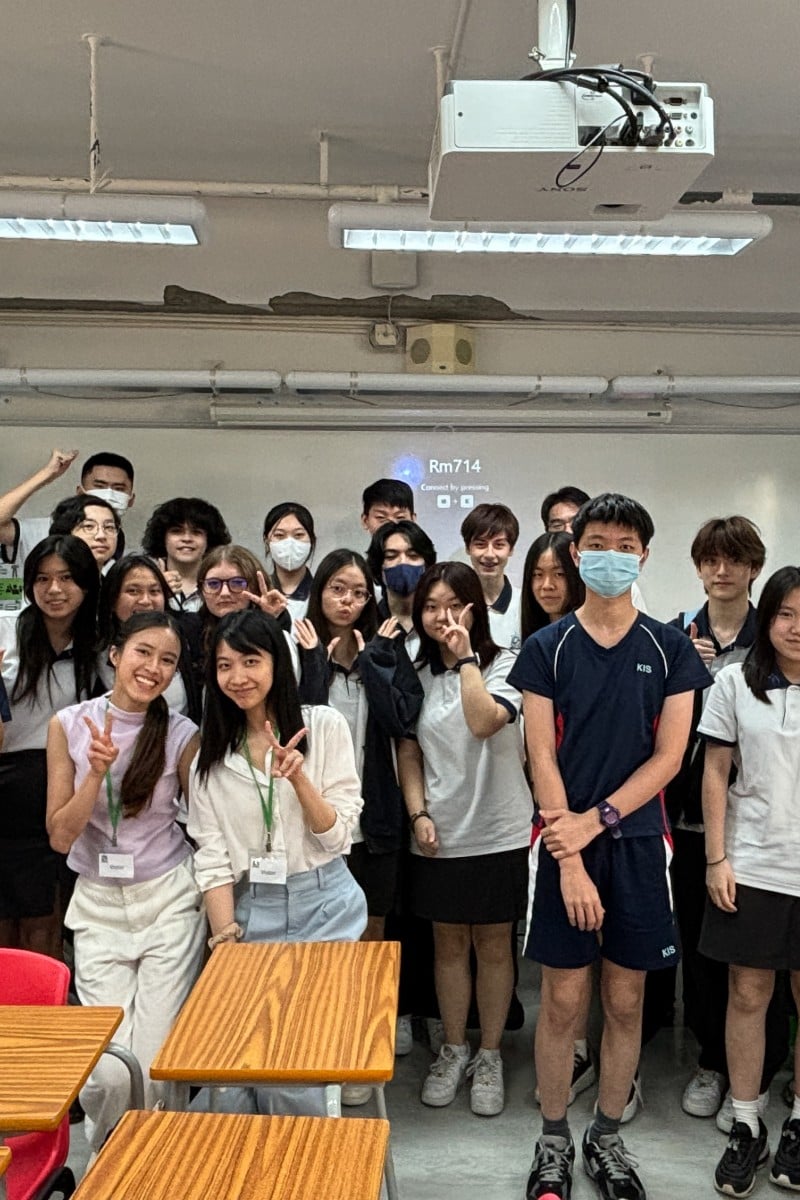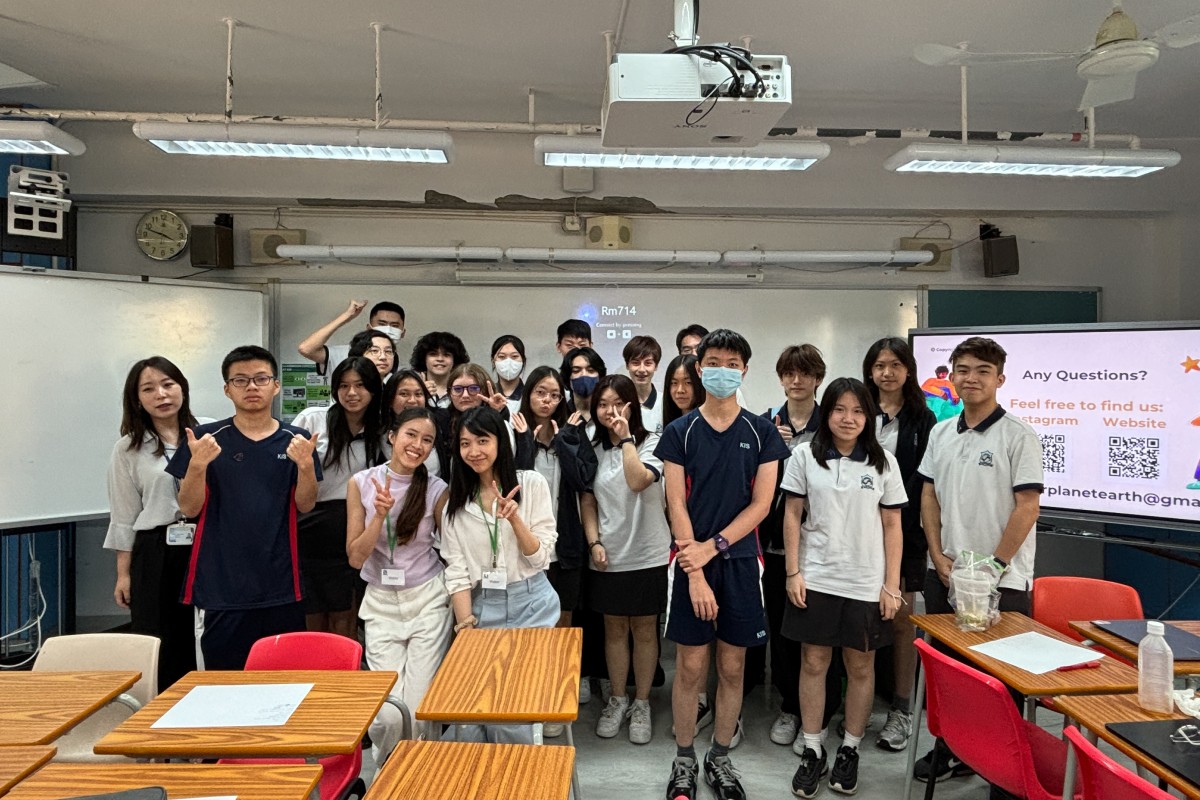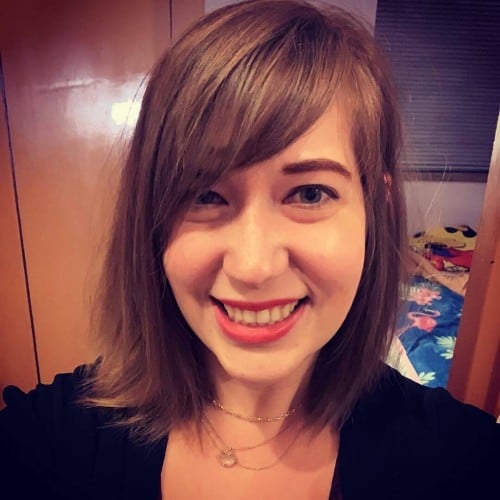
Youth-led NGO empowers teens through mental health education and self-help tools
Founded by student Alanna Sethi in Hong Kong, Helping Our Planet Earth offers workshops and events to encourage wellness and peer support.
 Helping Our Planet Earth has partnered with Korean International School in Hong Kong. Photo: Handout
Helping Our Planet Earth has partnered with Korean International School in Hong Kong. Photo: HandoutEvery week, Talking Points gives you a worksheet to practise your reading comprehension with exercises about the story we’ve written
Alanna Sethi arrived in Hong Kong right before the Covid-19 pandemic began. After months of online learning, Sethi spoke to her classmates at Australian International School about their struggles adjusting to the new normal.
These conversations inspired her to start Helping Our Planet Earth (HOPE). It is a youth-led non-profit organisation that empowers teens through mental health education.
“I had previously studied in the UK. When I struggled with my mental health, I’d been able to access the public mental healthcare system and some local charities and youth clubs,” said Sethi, who is now 21 and studying psychology at the University of Toronto.
“I found that really helpful, so I wanted to share that as a potential resource for other young people in Hong Kong.”
How Hong Kong schools can embrace body positivity
Global recognition
Sethi’s hard work landed her a spot as a Top 10 finalist in the 2024 Chegg.org Global Student Prize. The finalists were announced in September.
“It’s huge to represent Hong Kong and really show that we can do it,” Sethi said. “We can be changemakers and influential young people.”
Every year, the US$100,000 award is given to a student who has made an impact on learning, their peers and society. This year’s winner was Angela Elena Olazaran Laureano, a 17-year-old in Mexico who developed an AI-powered virtual medical assistant. She beat 11,000 other nominees from 176 countries to claim the top prize.
Teaching and learning
According to Sethi, HOPE aims to build “self-sustaining wellness ecosystems ... where young people have access to mental health knowledge and self-help tools”.
Many of these tools come from “actual therapy treatments that people would get, but breaking down the specific tools ... and sharing them as bite-size self-help skills”.
To build this ecosystem, HOPE offers workshops on topics such as mindfulness, emotions and peer support. The organisation is also focused on school partnerships. Students can practise what they learn by sharing it with their peers.
Most of HOPE’s work has focused on Hong Kong so far – it recently worked with Korean International School – but it aims to expand to other parts of the Asia-Pacific region.
HOPE has also recently launched an empowerment programme, Our Youth Leadership. It encourages students to become leaders by teaching them skills like event planning and public speaking.
“It’s really important that the mental health space has diverse youth representation. It’s important ... to empower other young people, get their ideas, and allow them to reach out to communities I wouldn’t be able to,” Sethi explained.
Why you shouldn’t trust all mental health advice on social media
Universality of mental health
In August, HOPE held an art exhibition in Hong Kong, “Universality”. Its works touched on mental well-being. There were also workshops on topics like digital storytelling and designing a friendly city.
The exhibition’s name refers to the wide spectrum of people’s mental health needs, from everyday challenges to more serious issues. Some people struggle to get through the day, while others thrive on the outside even as they face internal battles. These conditions are also always changing.
“Universality was really important to me, and demonstrating this whole part of the spectrum,” Sethi said. “It’s OK to be at either end ... and it’s OK for that to fluctuate.”
To test your understanding of this story, download our printable worksheet or answer the questions in the quiz below.
empowers 賦權
to give someone the power or confidence to do something
fluctuate 起伏不定
to change often in size, amount or quality
influential 有影響力
having the power to affect or change how others act or think
self-sustaining 自給自足
able to continue in a healthy or successful way without help from anyone or anything else
spectrum 範圍
a complete or wide range of related qualities, ideas, etc.
